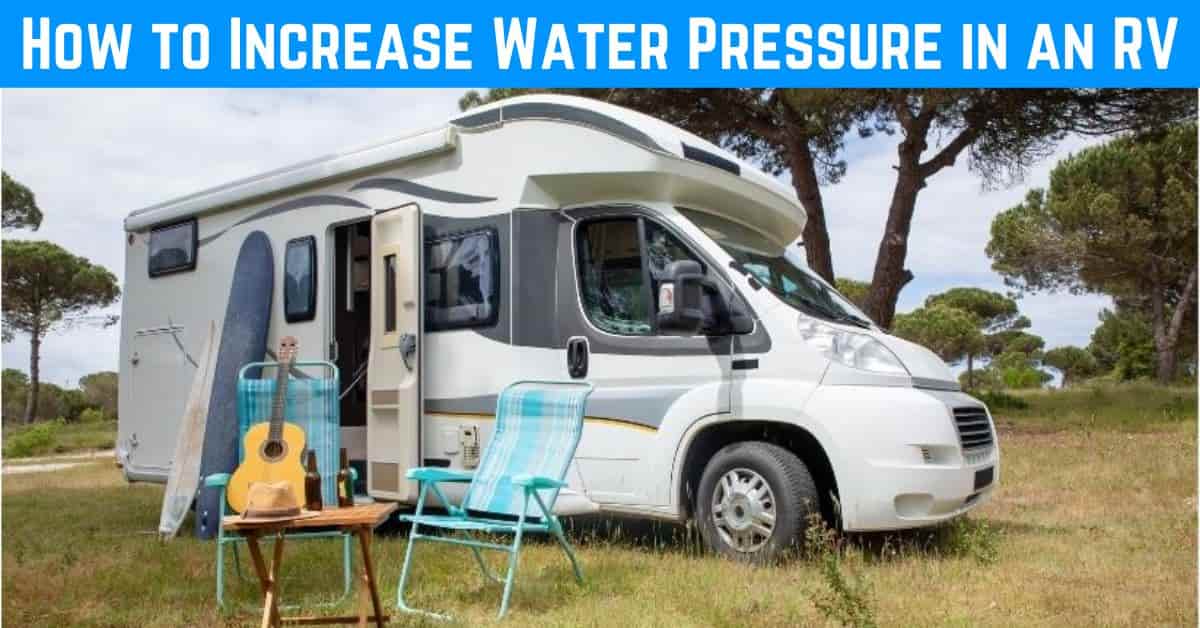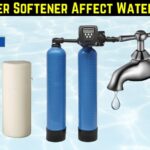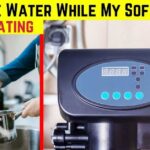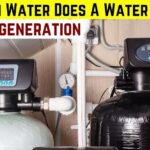When you are on the road in your RV, there are bound to be times when you need to increase the water pressure.
Extra oomph can go a long way, whether trying to wash a dirty dog or fill up your tank quickly.
Luckily, increasing the water pressure in your RV is relatively easy; here are simple ways to get it done!
We’ll cover these ways to increase the power of your flow without much hassle.
Tips To Increase Water Pressure In An RV
RVs generally have lower water pressure than you are used to at home. Depending on your needs, there are a few ways to increase the water pressure in your RV.
1. Water pressure booster
The booster will help to increase the water pressure from your RV’s main water line.
It is an excellent option if you need extra pressure for washing the dishes or showering. To install a water pressure booster, connect it to your RV’s main water line.
2. Water pressure regulator
The regulator will help to regulate the water pressure coming into your RV. This is an excellent option if you are concerned about the water pressure damaging your RV’s plumbing.
To install a camper water pressure regulator, connect it to your RV’s main water line.
3. Check the water pump
The water pump is responsible for providing water pressure to the entire RV. If it’s not working correctly, the whole RV will have pressure.
To check the booster pump, turn it on and see if you can hear it running. If you can’t listen to it running or it sounds like it’s struggling to run, it may need to be a replacement water pump.
4. Check the water lines
Another possible reason for pressure is a blockage in the water lines. Sediment buildup, mineral deposits, or other debris can cause it.
To check the water lines, turn on the water pump and open all the faucets in your RV. The lines may have a blockage if the water source is low at all the faucets.
You can contact the plumber to unblock the lines and get water with proper pressure.
5. Check the water filter
If you have a water filter installed, it may cause decreased pressure.
Over time, inline filters can become clogged with sediment and debris, restricting water flow and lowering pressure.
To check the water filter, remove it and see if the freshwater pressure increases. If it does, you must replace the inline RV Softener filter.
6. Check the city water connection
If you’re connected to city water, the problem may be with the connection itself. Sometimes the connection can become loose, which can lead to low pressure.
To check the connection, turn on the water pump and open all the faucets in your RV.
The connection may have joint issues if the fresh water tank pressure is low at all the faucets.
If you’re still having trouble diagnosing and fixing the problem, it’s best to consult a professional.
A qualified RV technician can quickly identify the cause of your low pressure and make the necessary repairs.
Why Do You Lose Water Pressure In Your Rv?
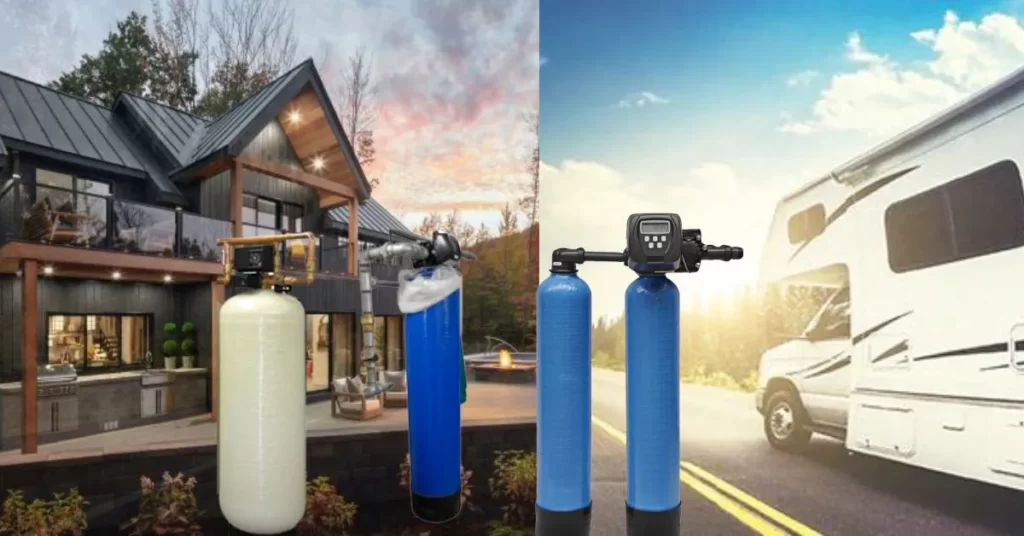
There are a few reasons you might lose water pressure in your RV.
1. Water Pump
Suppose your RV doesn’t have a built-in water pressure regulator. In that case, the onboard water pump will deliver fresh water at full force to your RV’s plumbing system.
This can cause problems with fixtures and pipes unsuitable for high water pressure. It can also lead to adequate pressure over time as the system becomes less efficient.
2. Clogged Pipes
Another common reason for a loss of city water pressure in an RV is clogged pipes.
It can be caused by sediment buildup over time or by using a hard water source in your RV’s plumbing system.
3. Low Water Pressure Regulator
If your RV has a regulator, it may need to be higher. This can cause a loss of water pressure and problems with fixtures and pipes designed to handle high water pressure.
4. Low water pressure
If the drop of the water pressure gauge in your RV is low, increasing it cannot be easy.
This is often the case in rural areas or when using a well water system.
5. Softener size
A small water softener for your RV’s plumbing system can lead to a loss of gallons of water pressure.
It is because the softener will remove more leaky water than it can replace the water pump, leading to a decrease in ideal pressure.
Do I Need A Water Pressure Regulator For Rv?
If you have ever been on an RV trip, you know there are times when you need high water pressure.
Whether you are trying to shower or wash the dishes, more water pressure is sometimes needed.
So, you can use a water pressure regulator to increase the pressure in your RV.
Pressure regulator valves are devices that control the level in your RV.
There are a few things that you should keep in mind when you are using an adjustable regulator.
- First, make sure that you understand how the pressure regulator works.
- Second, be sure to follow the manufacturer’s instructions carefully.
- Third, be sure to check the pressure regulator regularly to make sure that it is working correctly.
- Fourth, if you have any questions about using water pressure issues, be sure to contact your local RV dealer or RV plumbing.
Using a regulator is a great way to ensure you have enough fresh water pressure when needed.
Things Before Getting The Best Rv Water Pressure Regulators?
If you are looking for the best RV water pressure regulator, then you should consider the following factors: –
- The type of RV you have: There are different types of RV regulators on the market, each with unique needs. You will need to find a regulator specifically designed for your type of RV.
- The size of your RV: Your RV will determine the regulator size you need. Make sure to choose a regulator the right size for your RV.
- Your budget: Water regulators can range in price from a few dollars to hundreds. Be sure to set a budget for your regulator before you start shopping.
- The features that you need: Regulators come with a variety of different parts. Some pressure regulators have digital displays, while others have simple dials. Be sure to choose a regulator that has the features that you need.
- The warranty: Camper water pressure regulators come with a warranty, so be sure before purchasing.
How Can I Adjust the Rv Water Pressure Regulator?
If your RV is not getting enough water pressure or if the water pressure is too high.
You may need to adjust your RV water pressure regulator. Here are some simple steps to follow:
- Locate the softener water regulator. It is usually located near the main water supply valve.
- Use a wrench to loosen the adjusting nut on the regulator.
- Turn the adjusting screw clockwise to increase water pressure or counterclockwise to decrease water pressure.
- Test the new water pressure by turning on a faucet or shower head.
- Repeat steps 2-4 until you achieve the desired water pressure.
- Once the new water pressure is satisfied, use the wrench to tighten the adjusting nut. This will help prevent the regulator from being accidentally turned in.
- Enjoy your RVing adventures with peace of mind from knowing your water pressure is just right!
Why No Water Pressure In Rv When Hooked To City Water?
If your RV is hooked up to city water and you’re experiencing low pressure, it could be due to several factors.
The most common reason for pressure in an RV, when hooked up to city water, is because the water lines are not adequately primed.
It means air is in the lines, and the water cannot flow through as easily. There are a few different ways that you can prime your RV’s water lines:
- Use a small hand pump to pump water through the lines.
- Run the water in your RV for a few minutes until the pressure builds up and the air purges from the lines.
- Use a product like RV Antifreeze to flush the lines and add extra protection against freezing.
If you still need help after taking these steps, there may be an issue with the city water supply.
You can check with your local municipality to see if there are any known issues with the water pressure in your area.
Conclusion
In conclusion, there are a few tips that you can increase the water pressure in your RV.
You can use a water pump, install a larger storage tank, or add a pressure regulator.
By following these tips, you can ensure enough water pressure to meet your needs while on the road.
FAQs:
How Do I Know If My Water Lines Are Properly Primed?
One way to check is to turn on all the faucets in your RV simultaneously. If the water pressure is low all around, then it’s likely that the issue is due to unprimed lines.
Another way to tell is by feeling the water coming from the faucets. The lines probably need to be primed if it feels sputtery or there are air bubbles.
I’m still having Trouble with Low Pressure. What Could Be The Issue?
If your RV is hooked up to city water and you’re still experiencing low pressure, there’s possibly an issue with the city water supply.
You can check with your local municipality to see if there are any known issues with the water pressure in your area.
What Can I Do If The Water Pressure In My Rv Is Too High?
If the water pressure in your RV is too high, you can install a water regulator to help regulate the water flow and prevent damage to your plumbing.
You should also ensure that all your faucets and fixtures are adequately aerated so water can flow through them quickly.
